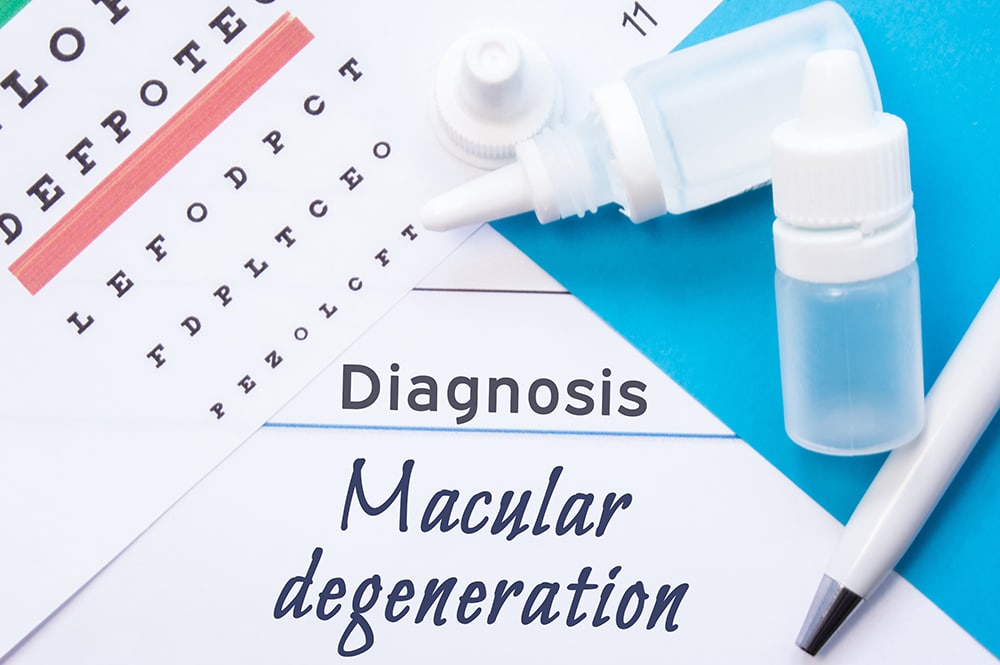
Age-related macular degenerationalso referred to as (AMD) is the leading cause of blindness among older Americans. During Macular Degeneration Awareness Month, the American Academy of Ophthalmology encourages people to take care of their eyes, including making an appointment with your ophthalmologist. Early detection is the key to treating the disease and recent advancements in the treatments for AMD over the last 10 years have help save the vision of thousands of people and made the condition more manageable.
Age-related macular degeneration is the number one cause of central vision loss in Americans who are over 50 years old. It is a condition that affects the macula which is the part of your retina where your central and color vision comes from. Age-related macular degeneration is a complex eye condition where degenerative proteins build up and deposit under the retina. In the early stages of AMD these deposits can be seen by your ophthalmologist so early treatment can begin. In later stages of the eye disease, the structural support system of the retina starts to break down allowing abnormal blood vessels to grow. These extra blood vessels can leak and disturb the retinal cells causing you to start losing your central vision. There are three main types of age-related macular degeneration so in order to get the proper diagnosis and treatment, it is important to have a comprehensive exam by your eye doctor.
Those most at risk for age-related macular degeneration are those over 50, genetics and family history, smoking, which increases the risk of progression, gender (more women are affected than men), race (Caucasians are more susceptible), people with hypertension, hypercholesterolemia, cardiovascular disease, those with certain eye conditions and people with light colored irises, and UV light, although that has not been proven. Until we know more about the effects of UV light, people should protect their vision with UV protective sunglasses. Age-related macular degeneration affects more than 2 million Americans over 50 years old. Your chances of acquiring the disease at 65 is around 6% and at 75 your chances grow to around 20%
There are some things you can do to reduce your chances of acquiring age-related macular degeneration which include quitting smoking. There is also some evidence that certain vitamins can decrease your risk of progressing to a more advanced stage of macular degeneration by as much as 25% if you start while the condition is in its early and mid-stages.
There is hope and there are many new and advanced treatments which, depending on your type and severity of age-related macular degeneration, can help prevent further vision loss, and in some cases regain your vision back to 20/20.
Alpine Eye Care is a leading eye care center in Northern Michigan. Dr. Chaulk and our team have helped thousands of people enjoy better vision and encourage you to schedule your next eye exam soon. Call 1.877.733.2020 or schedule an appointment today to learn more about our practice, read patient testimonials and receive excellent care.
